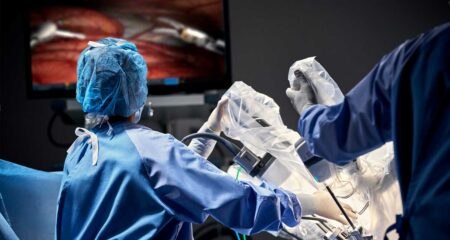 South African hospitals are bracing for a surge in admissions as the new Omicron variant drives a sharp rise in coronavirus infections and as more evidence emerges about the severity of the illness caused by the strain.
South African hospitals are bracing for a surge in admissions as the new Omicron variant drives a sharp rise in coronavirus infections and as more evidence emerges about the severity of the illness caused by the strain.
The seven-day moving average of daily new cases in the country rose to 10 055 last week, from less than 300 three weeks earlier. Hospitalisations also picked up but remain relatively low, with admissions standing at 3 268 on Sunday. Whether there will be a deluge of new patients is the biggest question.
Severe symptoms in patients who contracted earlier variants typically developed between one and three weeks after they were diagnosed, according to the National Institute for Communicable Diseases. And while anecdotal evidence and initial data analysis from one hospital complex suggests that Omicron may cause milder illness, especially among those who’ve been vaccinated or previously infected, it will become clearer this week or next if that’s indeed the case.
“Our admissions are doubling every day,” said Fareed Abdullah, director at the South African Medical Research Council and an infectious disease doctor at the Steve Biko Academic Hospital in Pretoria. Still, while it remains too early to tell, the current wave of infections appears to be different from earlier ones, he said.
The first Omicron mutations were detected in South Africa and neighbouring Botswana last month, with its discovery formally announced on 25 November. The variant is now the overwhelmingly dominant one in South Africa.
The authorities say they are ready for a patient influx.
“We have activated resurgence plans in all health-care facilities,” said Ramphelane Morewane, a chief director at the health department. “All hospital beds that were available in the third wave are being readied for this wave. We have strategic reserves in hospitals to prevent shortages of equipment.”
Ample capacity
Hospitals were stretched to their limits during previous coronavirus surges, with reports of ambulances driving from facility to facility trying to find space for severely ill patients and oxygen supplies running out. They currently have ample capacity, even in Gauteng, the global epicenter of the Omicron outbreak.
Netcare, which operates South Africa’s largest private health-care network, had about 200 Covid-19 patients by late last week even though infections were rising rapidly, indicating that most cases were mild to moderate, according to Richard Friedland, its CEO. There had been so-called breakthrough infections in people who had been vaccinated, most of them in people under the age of 30, he said.
As many as 68% of hospitalised coronavirus patients in the Pretoria area last month were under 40, an analysis of 640 admissions by the NICD showed. The data was preliminary and trends may change, the institute said. Individuals over 50 accounted for 66.1% of those admitted during the third wave earlier this year.
This fourth wave, which we have started, can be managed without too many casualties and loss of lives if we observe safety measures
The risk of of large numbers of people falling seriously ill may be exacerbated by relatively low inoculation rates. About a quarter of the population of 60 million has been fully vaccinated so far, even though the country has an abundance of shots. The government renewed a campaign over the weekend to try and improve take-up rates.
The authorities are also worried about super-spreader events heading into the year-end holiday season.
“This fourth wave, which we have started, can be managed without too many casualties and loss of lives if we observe safety measures, the biggest risk being gatherings, especially indoors,” health minister Joe Phaahla said. “We can save our loved ones, friends and work colleagues by vaccinating.” — Mike Cohen and Janice Kew, (c) 2021 Bloomberg LP




